Your Role in Restoration
By Guest Writer Desmond Meade
Time 100: The Most Influential People of 2019
Executive Director of Florida Rights Restoration Coalition
Orlando, Florida
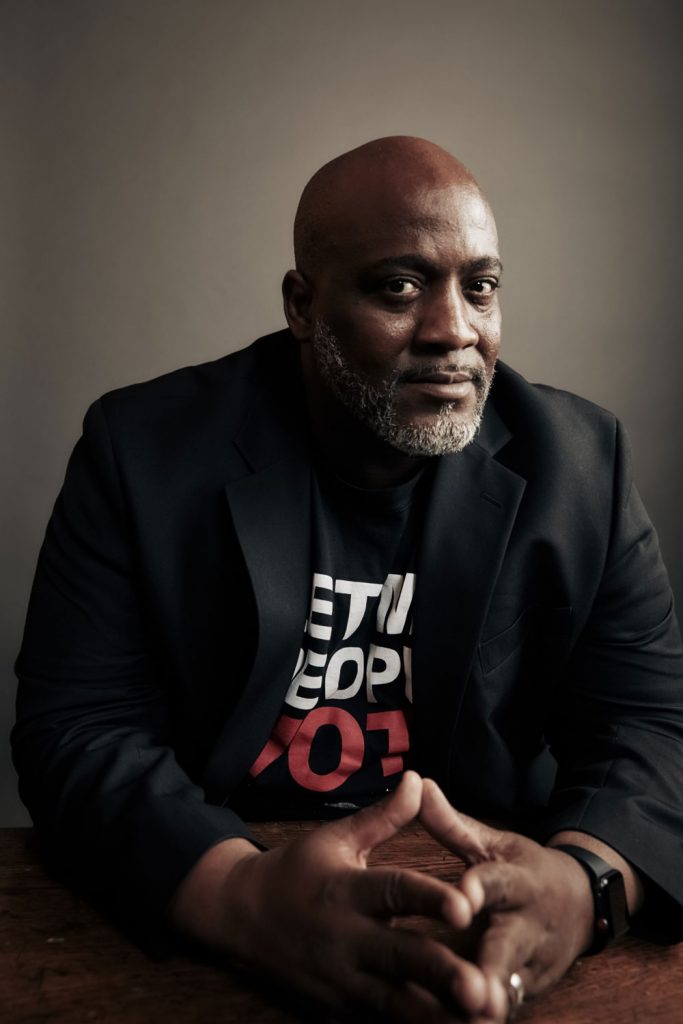 In August of 2005, I found myself standing in front of railroad tracks on a hot, humid day in South Florida, waiting on a train to come so I could jump in front of it.
In August of 2005, I found myself standing in front of railroad tracks on a hot, humid day in South Florida, waiting on a train to come so I could jump in front of it.
As I stood there, my mind went back to my parents. My father was a pastor of a church, and I knew that my parents had not raised me to be in this position. But there I was that day, a broken man. I was homeless. I was addicted to crack cocaine. I was unemployed. I was recently released from prison. And the only things I owned were the clothes on my back.
All I could think about was, When that train hits me, am I going to feel pain? And if I am, how long am I going to be experiencing that pain? And even the thought of me having to feel that hard steel wheel just severing my body was not enough to make me move. So I stood there and I waited. And I waited, and I waited. I didn’t have any more hope. I didn’t have any more self-esteem.
In August of 2005, I found myself standing in front of railroad tracks on a hot, humid day in South Florida, waiting on a train to come so I could jump in front of it.Click To TweetJust the day before, I had also been standing in front of those railroad tracks. I remember I wanted to get high, so I called a friend of mine, J Dog, to ask him for some money. And he told me, “Listen, I know this preacher that, man, if you could just go to her and ask her for prayer, you’re going to be all right.”
And something inside me said, That’s what I’m going to do. When I searched my pockets, all I had was enough bus fare to get halfway there. I got on the bus to downtown Miami and caught it as far as I could afford, and then I had to walk the rest of the way. But I had to get to this preacher and I had to get prayer because I was at my wit’s end.
Finally, I walked into church, and service was just starting. I sat in the back. It was a beautiful service—it was praise and worship and then she taught well from the Bible. At the end of service, I waited for people to give their greetings to the preacher and then leave and go home.
While a couple of people were still in the building, I walked up and said, “Pastor, I don’t want any money. I don’t want any clothes. I’m homeless, and I’m addicted to drugs, and a friend of mine told me that if I could just come here and ask you to pray for me, it’s going to be okay.”
She put her hand on my shoulder, pointed to a man about 10 feet away and said, “You see that gentleman over there? Go to him and set up an appointment for tomorrow.”
Now, when she told me that, so much went through my head. What the heck? Pastor, I need prayer now. RIGHT NOW! I’m suffering right now and you’re going to tell me that I have to wait ‘til tomorrow for prayer? And I remember walking out of that church believing that even God had turned His back on me.
And so that very next day, I’d returned to those tracks. I literally had no hope. Not even God wanted to deal with me, I thought, and so I was ready.
I waited on that train. But it didn’t come. I didn’t know it at the time, but God had other plans for me. As I was starting to cross the tracks to leave, I asked myself one question: Desmond, if that train would have killed you, how many people would come to your funeral? The immediate answer was zero.
It felt so empty. I changed the scenario around a bit and thought more. Okay, Desmond, the train killed you, and your face is on the front page, top of the fold, of the Miami Herald: Desmond Killed by Train. How many people would come?
I thought long and hard and only came up with four people. Four. Out of that four, maybe two would have shed a tear. That thought hit me in the gut like a Mike Tyson blow. And I started questioning myself, After all these years of living on this planet, after all these relationships that you had and the places that you traveled, and all of the people that you’ve encountered, you mean to tell me that only four people would care if you died? Have your life been that insignificant?
I asked myself one question: Desmond, if that train would have killed you, how many people would come to your funeral? The immediate answer was zero.Click To TweetChasing Joy
Taking that feeling and those questions with me, I crossed the tracks and walked a few blocks farther, and I checked myself into drug treatment.
And it just so happened that while I was in treatment, Rosa Parks passed away. I was sitting in a room by myself, watching so many people paying their respects with tears in their eyes, and something just hit me. I jumped up out of my chair and I started screaming at the TV. “That’s it! That’s it! That’s it! That’s what I want.”
In my mind, I started planning my own funeral. My mind was racing. Okay, where am I going to have this thing? I’m going to have it at Joe Robbie Stadium, and I’m going to pack it up. People are going to be on the field, in chairs, and there’s not going to be a dry eye in the house. That’s what I’m going to do.
Then the question came of what type of person could command that type of audience at a funeral? I landed on two types: an athlete or a movie star. That’s it. Well, I’d played a little football in high school, but I knew I couldn’t be an athlete anymore. So my mind went to movie star and I immediately thought about Denzel Washington. Now, I don’t think I’m a bad looking guy, but I’m not the Denzel Washington type of handsome; I was sure of that! And so I felt depressed because I couldn’t be an athlete and I couldn’t be a movie star. I was never going to have a big crowd at my funeral.
Then one day, in treatment, a young man approached me after a group session and told me that something that I said during the session caused him to experience a paradigm shift. It caused him to have a different perspective of life. It caused him to have hope.
When he told me that, something erupted in my gut that I had never felt in my life before. And it just blew me away. Today I can tell you that I was experiencing a joy that I didn’t even know existed. I was experiencing a joy that I’d been chasing all my life and didn’t even know I was chasing it.
My mind went back to Rosa Parks, and how as a result of her one act, she contributed to a lot of good things happening in our society. I thought that maybe if I could take that pain and that suffering and that low self-esteem that led me to the railroad tracks, and package it all in such a way to help others so that they won’t go to those railroad tracks, then they could help others—and so on and so on.
That day I discovered God’s purpose for me—that no matter what my station was in life, my purpose was to give back. No matter how rich or how poor, no matter what title or lack of title I might have, there was always someone for me to serve.
Everything my parents taught me as a child started rushing back to me… When Jesus said do you love me? Feed my sheep (John 21:17). And whatever you have done to the least among you, that’s what you’ve done to me (Matthew 25:40). That although you may speak with the tongues of men and angels, or prophesy or have great faith or donate all you have, and all that good stuff—man, it is nothing if you don’t have love (1 Corinthians 13:1-3).
If I don’t have love—not love for me, but love for the prostitute, and for the drug addict, and for the homeless, and for the convicted felon. If I don’t have that kind of love, then all of that other stuff is like what? A gong or clanging cymbal. It’s just noise. And all of that I was suddenly experiencing and I understood.
At that moment, I understood that all of the suffering and all of the pain and humiliation that I’d gone through became worthwhile if it would help just one soul. I realized I didn’t need a big funeral. I don’t need it. My time on this earth became worthwhile because it was used to improve the life of at least one person.
Maybe if I could take that pain and that suffering and that low self-esteem that led me to the railroad tracks, and package it all in such a way to help others so that they won't go to those railroad tracks, then they could help others—and so on and so on.Click To TweetI was at the treatment center for about four months, and after completing drug treatment, I moved into a homeless shelter. While there, I just didn’t want to get high anymore. I was tired of that vicious cycle. But I knew I needed to do something because if I got back to those railroad tracks during a low point, I might not be as lucky.
I decided to try to go to school and ended up writing at the local college in the paralegal program, graduating at the top of my class. My professors encouraged me to continue my education, so I pursued a bachelor’s degree in public safety management with a concentration in criminal justice.
Now, I chose that because I had a lot of experience getting arrested and appearing before judges. I figured that experience might help me out in the class—and it did. I ended up graduating with highest honors, and I was eventually accepted into law school. In May of 2014, I graduated with a law degree. I praise God for it.
At this part in my story, I used to say that it doesn’t have a happy ending. Because in spite of overcoming all of these obstacles and dedicating my life to giving back to the community, I still can’t practice law. My civil rights have never been restored. As a convicted felon, I had lost those for life, including the right to vote.
My story isn’t unique. A lot of times when we think about felons and crime, we think about the worst things people can go to prison for, but in fact, more than 75% of those convicted of a felony in Florida don’t even go to prison. A few years back, I met Mr. Charles in Hillsborough County. He couldn’t vote because eight years prior, he was convicted of driving with a suspended license. There are too many of these stories out there for me to count.
But despite not being able to practice law, I no longer say that my story doesn’t have a happy ending, because every day I wake up is a happy ending. Every day that God allows me to open my eyes—especially when I open my eyes and see my beautiful wife—it’s really a great day.
In fact, it was when my wife was a candidate for the state legislature and I learned I could not vote for her, that my focus became sharper. I became the president of the Florida Rights Restoration Coalition and began to lead the charge to restore voting rights.
During that time and every day since, I asked God to give me strength, wisdom, and stamina to do His work. Every day, I want to make sure that I’m going to be able to do something that matters.
Fighting for Restoration
That’s what Amendment 4* represented for me. (*Amendment 4 was a 2018 initiative in Florida to automatically restore the right to vote for people with prior felony convictions, except those convicted of murder or a felony sexual offense, upon completion of their sentences, including prison, parole, and probation. Previously, people with prior felonies never regained the right to vote in Florida, until and unless a state board restored an individual’s voting rights.)
When I started the campaign, everybody left. Every organization scattered. It was just me and a group of volunteers. I traveled the state of Florida, putting 50,000 miles a year on my car going around talking to people. From the beginning, it was a campaign based around love.
Sure, there were policy-related things with broad appeal to discuss with voters. For example, in 2011, a study showed that when you restore civil rights back to people, you drastically reduce the rates in which they reoffend. In Florida at the time, 33% of those released from prison committed another offense within a year. But when you looked at those whose rights were restored, it dropped to 11%. That drop saved the state of Florida and taxpayers over a billion dollars that could be used on other services to the community.
But before policy and figures, I wanted to appeal to people with a campaign of love. I started my conversations by asking one key question, regardless of their political affiliation, race, or status: “Has anyone you love ever made a mistake?” This resonates because we all love someone who has made a mistake. Or we’ve been the one making the mistake.
In fact, when you look at the men God chose to use, Moses murdered, David murdered, and Saul—before he was Paul—did some things back then that if he were to do today, we’d be screaming for him to be buried underneath the prison! When God sent Ananias to Saul, in fact, Ananias was like, “Hold on, God. You sure you got the right guy? This guy?” (Acts 9:10-17)
Here’s the reality: 95% of people who are incarcerated are going to get released. What do you want them to encounter when they come home? If you want to make it more difficult for them, then you’re going to increase the likelihood of them reoffending. So no matter what a person has done, if they are released back into our communities, we should want to make sure that they’re provided every opportunity to be able to successfully reintegrate as a contributing member of society as soon as possible.
For us, this is what it was about. It wasn’t about Republicans or Democrats or any type of politics. It was about love and redemption, as well as good policy, and eventually we collected over a million signatures to get it on the ballot.
The amendment passed with 5.1 million votes—votes that were not based on hate or fear, but rather on the value of redemption. And that is a core of our faith. There, but for the grace of God, go I.
I started my conversations by asking one key question, regardless of their political affiliation, race, or status: “Has anyone you love ever made a mistake?”Click To TweetPreparing for More
As strong men of faith, it’s amazing when we worship and meet in groups to grow together. But guess what? Those things are a preparation. We can do more.
At a convention, I heard an author named Michelle Alexander share a story about a small group of homeless men living in a park across the street from a church. She went over to talk one day and asked, “Hey, do you know that church can feed and clothe you?”
They said, “Yeah, we go there to eat every day and have gotten clothes.”
So she said, “That seems like a good church for you to join with wonderful men and women of God doing God’s work.”
They said, “Heck no, we won’t join.”
Perplexed, she asked them why. And their answer to her was, “That is the one place where we have felt the most shame.” The one place where they felt the most shame—not the conviction of the Holy Spirit, but worldly shame.
You see, there’s a lot of love each week at our worship services and meetings. So many people are greeted and welcomed with open arms. I, too, have felt that love, and it feels good. It is good.
But I’m wondering if that homeless person downtown is feeling that love. I’m wondering if that returning citizen that just got released from jail—or the one who is still in jail—is feeling that love, because that’s what we need more of in this fallen world.
At the end of the day, I always tell folks that hate can’t drive out hate, and fear can’t drive out fear, and darkness can’t drive out darkness. But love, oh that wonderful word, L-O-V-E, love. Sometimes it seems like 1 Corinthians 13 might get a little too complex for some people so I put it like this: it’s wanting for your neighbor what you want for yourself.
What is it that you want? What do you hope God will do in your life?
You take your answers to those questions and project those answers onto somebody else, and that’s what you work toward. You don’t just work to advance yourself. You work so that your neighbor, or difficult family member, or the coworker that irritates the heck out of you, or the recently-released returning citizen, or the recovering addict… you work so that they get it—that they get to experience the love and grace of Christ.
One example of this that has stayed with me is from a few years ago when they had the hurricanes in Houston with all the flooding. There was a black guy on a boat who rescued a white guy from the floodwaters. And he stopped long enough so the white guy could go back to his house to get his confederate flag. In spite of what the history of that flag meant to him, in that moment he was able to look beyond that flag and see another human being who was hurting. You with me?
For any one of you reading this right now, if you were driving down the interstate, came across an accident, and decided to pull over to help, what would happen next? Let’s say you run up to that person who’s lying on the side of the road, injured and scared. Your first question is not going to be, “Did you vote for Donald Trump or Joe Biden?” It’s not going to be, “How much money do you make?” It’s not going to be, “What’s your immigration status?” or “Have you ever been arrested?” No, your first questions are going to be, “Are you okay? How can I help?”
I believe it’s those moments that we aspire to embody, because no one really wants to be engaging in this back-and-forth fighting and in all this division and hatred. Deep down inside, that’s not how we were built. God did not place that as the dominant spirit in our souls.
No, deep down inside, everybody wants to be forgiven. Deep down inside, everybody wants to be loved.
As men of God, how do we operate in the Spirit out of a place that acknowledges those desires in every single man we meet, no matter what he’s done and where he is on the journey?
Gentlemen, I beseech you: let’s continue to do the will of God.
THE BIG IDEA: With a heart of, ‘There, but for the grace of God, go I,’ we get the honor of participating in God’s restoration of men.
♦♦♦

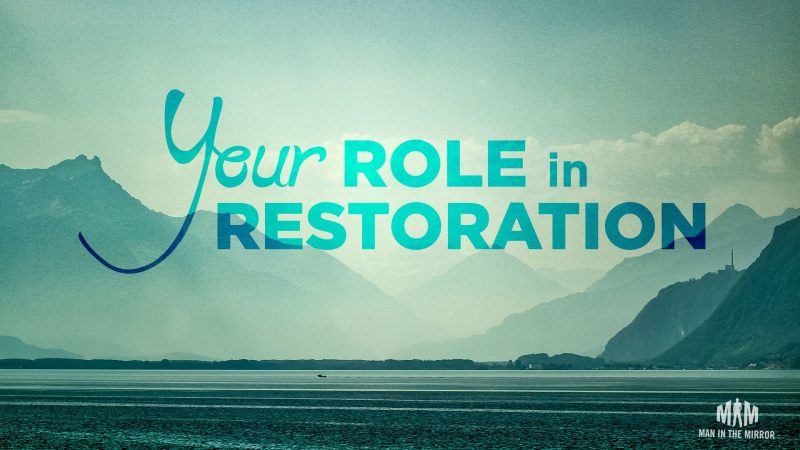


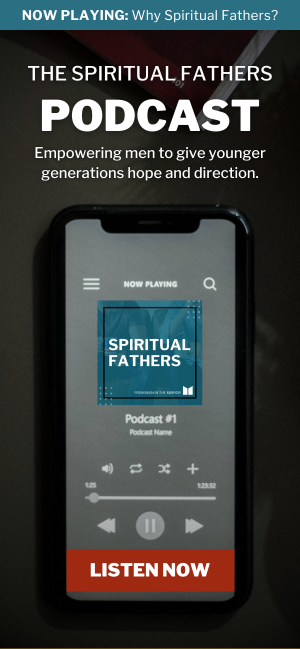
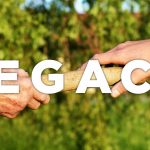
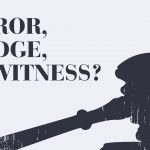

Very encouraging testimony!
Thank you Desmond for sharing your life and your heart. Inspiring to make sure my faith is put into works as well as the fact that the love of God levels the playing field—no rich or poor, no black or white. All of us are image bearers created for relationship with God and each other. Thanks for the reminder!